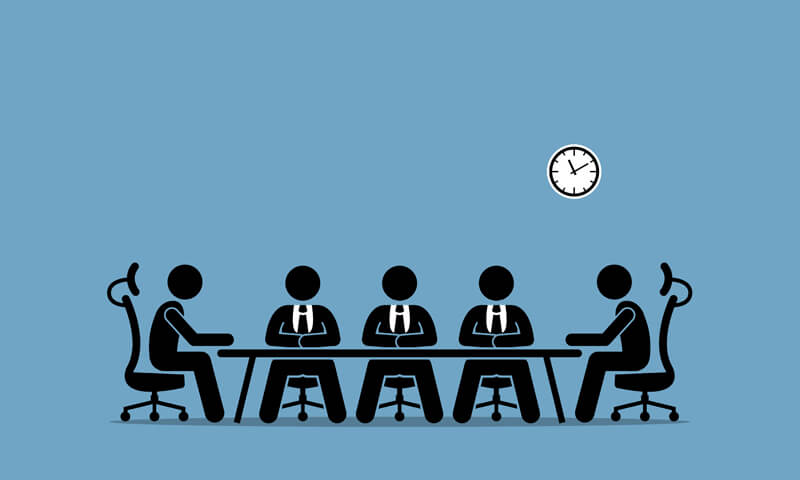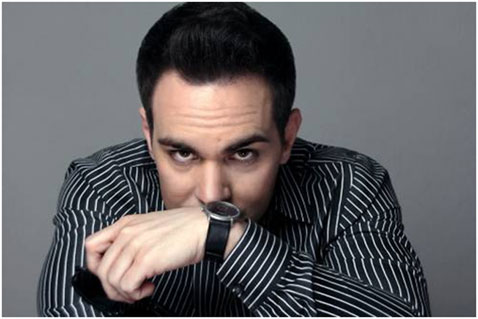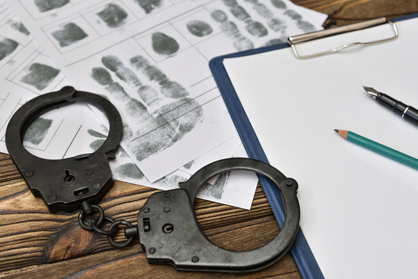Summary: Enrollment at law schools has dropped across the country. Many have reduced admission requirements to pad enrollment, but doing so may have serious consequences, even putting a school’s accreditation at risk.
According to Inside Higher Ed, law schools are actually competing for students with low undergraduate grade point averages and LSAT scores. Why? Because the number of students applying to law schools has sharply declined nationwide. According to Bloomberg, enrollment has dropped 18 percent since 2010. It seems that each year, fewer and fewer students apply to law school, likely due to concerns they have about the legal job market.
For example, it used to be that Thomas M. Cooley Law School was known for admitting underqualified students. During last year’s fall semester, however, the entering classes of seven law schools had lower median LSAT scores than Cooley.
Many professors are concerned that, by admitting underqualified students, law schools will be accepting those students who may not be able to graduate from law school or pass the bar exam.
Just five years ago, not one American Bar Association-accredited law school reported a median LSAT score of less than 145 for its entering class. Today, seven law schools report scores of less than 145. Therefore, at least half of the first-year students at these schools scored 144 or lower on the LSAT.
The scores on the LSAT range from 120 to 180. The average score on the test is a 150. The test does nave a margin of error, but according to legal education experts and law school administrators, 145 makes quite the statement.
Jerome M. Organ is a professor at the University of St. Thomas School of Law. Organ studies the legal market, and said, “At one level, we’re in uncharted territory,” speaking of the low LSAT scores.
Southern University Law Center is one of the seven schools with median LSAT scores below 145. Last fall, its median score was 144. However, even with a low median LSAT score, it is still facing competition from other law schools for students.
John K. Pierre, the vice chancellor of Southern University Law Center, said, “Certain schools never would have admitted a student with a 145 LSAT score several years ago. But this year they did and last year they did, and in some cases they are even offering students with that profile scholarships or tuition reductions.”
When schools lower tuition, enrollment often increases.
Law school enrollment at ABA-accredited schools is at the lowest level since 1973. This is especially significant since 53 additional law schools have opened in that same period. Those students who are applying have lower test scores than past applicants.
According to Organ, in 2010, 136 law schools had a median LSAT score of 155 or higher. Today, only 101 schools report median LSAT scores of 155 or higher.
The seven schools with the lowest median scores say that they allow opportunity to students who are determined to become attorneys, but may not have the LSAT scores or grade point averages to show it. However, many call these schools irresponsible for admitting underqualified students.
Students with low scores are risking both their time and their money. Those who score lower on the LSAT often spend more on their tuition than students who score well. According to Organ, roughly two-thirds of students who scored below 150 pay over $30,000 per year for law school, although they may not even pass the bar and employment possibilities are slim. Those who score 155 or greater typically pay less than $30,000 per year for law school, attend stronger schools, and are more likely to pass the bar and find a job.
For-profit entity Infilaw owns three of the seven schools with the lowest LSAT scores. These are Charlotte School of Law in North Carolina, Florida Coastal School of Law, and Arizona Summit Law School. According to Wikipedia, some argue that Infilaw accepts students with low scores to increase its profits.
David Frakt was a candidate for dean of Florida Coastal. Last year, he was escorted off campus as he presented to the faculty. He said it was unfair, and possibly unethical, to accept students with low scores. According to Frakt, students with scores of 144 or lower demonstrate insufficient skills required for law school, and argued that these students would face “extreme risk” of failing the bar exam. Last year, the median LSAT score for Florida Coastal was 143.
Frakt, a formal legal scholar and Air Force lieutenant colonel, said, “For me, that 145—going below that, even 145 itself—should be a no-go zone. That really was conventional wisdom five years ago.”
Frakt even cautioned Florida Coastal that low LSAT scores could put the school’s accreditation by the ABA at risk in the future. The ABA prohibits law schools from admitting students who do not “appear capable” of completing the law school program and passing the state bar exam.
As the legal job market continues to remain stagnant, many law school enthusiasts advertise a law degree as a great asset for students—even if they have no desire to practice law. They argue that the students can use the skills obtained during law school, such as legal thinking, for other careers. Recently, at the Association of American Law Schools conference, a common theme was opportunities for law grads in other job markets.
Many law schools are in a dilemma—they can either suffer from reduced enrollment if they choose to maintain their admission standards, or they can keep enrollment up by lowering their standards. Clearly, many have opted to keep enrollment up and have lowered their admission requirements. This allows schools to avoid faculty and staff layoffs and other extreme measures of cutting costs.
Barry Currier is the managing director of accreditation and legal education at the American Bar Association. He said law schools may be in trouble if students begin flunking out, because it shows that the schools should not have accepted them. He explained, “A school that has relatively lower credentials on the front end and high attituon may have an issue, even if their bar pass rate is good.” The ABA reaccredits law schools every seven years.
In addition, if students do graduate, but fail the bar exam, it shows that the schools are not adequately preparing them to become attorneys.
Fortunately, the number of students who have failed out, dropped out, or transferred law schools has not changed much in the past couple of years. According to Currier, no schools are on probation. “Our process is sort of set up to look back at how a school has done with the students it chose to take and how the program is offered,” he explained.
According to Frakt, the former candidate for dean at Florida Coastal, the ABA is not doing enough to maintain standards, and law schools are exploiting the accreditation cycle to enroll students who may not pass the bar exam. Since there are a few years between acceptance and the bar exam, schools that are admitting students who are less qualified are not under ABA scrutiny. Frakt commented, “There’s a window of opportunity there where their bar numbers don’t look too bad, so they can continue to draw in students, and make money off students. Because those students don’t realize how weak their chances really are.”’
The University of Maine School of Law dropped its application fee.
In addition, public law school data leaves many concerned. Bar passage rates do not give students an idea of their chances of success in law school. For example, if a portion of a graduating class drops out, and then 75 percent of the remaining students pass the bar, the pass rate is inflated.
Law schools also report LSAT scores for their 75th, 50th, and 25th percentile of their class, as opposed to average LSAT scores. This means a school could have 25 percent of its students with a 145 or above on the LSAT, with another 25 percent scoring well below that. Students who score a 120 would be swept under the rug in this reporting method.
Of course, the LSAT is not a perfect predictor of success. The test is meant to anticipate first-year performance in law school, but it is often used as a crude method of predicting both graduation and bar passage rates.
Thomas Cooley has used more than just LSAT scores to predict success. Its median LSAT score has not fallen under 145. Some, such as Organ and Frakt, explain that this is because the school has dealt with low-scoring students for so long that it cannot afford to lower scores again without putting its graduation rate or bar passage rate at risk.
Don DeLuc is the president and dean of Thomas Cooley. He explained that the even scores are the result of admissions policies that have not been updated since the legal job market crashed. However, the school is working on a new admissions rubric that will place more emphasis on college grades instead of LSAT scores. DeLuc said that required LSAT scores likely will not change much.
Since Cooley did not lower admission standards, it has paid in lower enrollment. In 2011, the first-year class had 1,161 students. This year, the incoming class had only 445 students. Cooley must now close one of its five campuses. The Wall Street Journal adds that some schools may have to close altogether.
Thomas Cooley is also facing competition for students who score around 145 on the LSAT. DeLuc expressed concern that other law schools may not understand how to work with low-scoring students. “I would hope they are not going to just bring them in and do exactly what they did with their student profile in the past,” he explained.
Thomas Cooley uses each student’s GPA and LSAT score to predict his or her chances of success in law school. Students with less than a two-thirds chance of success are rejected. However, students are well aware of the challenges they face upon admission.
Charlotte School of Law’s dean, Jay Conison, explained that the law school does not give students an idea of their chances of success. Instead, advisors offer guidance to students to help them succeed as they complete their classes at the school.
Last fall, Charlotte School of Law’s entering class had a median LSAT score of 142. In 2011, it was 148.
Conison did explain that Charlotte School of Law offer some students conditional admission: if two pre-law classes are passed, the student will be fully enrolled. In addition, the law school is offering more assistance while they are enrolled and with studying for the bar exam.
The school is also planning to change its curriculum. Conison said, “It is certainly very clear that it is a population that is going to require more of the kind support mechanisms in the school that we provide for our students. And it also will mean that the curriculum will have to be adapted to the different character of the students, and it may mean that more intensive support for bar passage will have to be provided.”
Appalachian School of Law is an independent law school in Virginia. The median LSAT score for last fall’s first-year class was 144. Although this was the same as in 2011, enrollment has dropped tremendously. In 2011, 146 students were enrolled as 1Ls. Last fall, only 48 students made up the first-year class.
Donna Weaver, a spokeswoman for Appalachian School of Law, said that such a decline meant that faculty was laid off, but the school’s LSAT score was kept intact. The school did not want to admit students with lower LSAT scores for fear that they would fail the bar exam.
However, Appalachian is also facing steep competition from schools who offer students scholarships. “The price wars are scary. We can’t afford to just drop our tuition altogether,” Weaver said.
Source: Inside Higher Ed
Photo credit: lawschool.uslegal.com















































